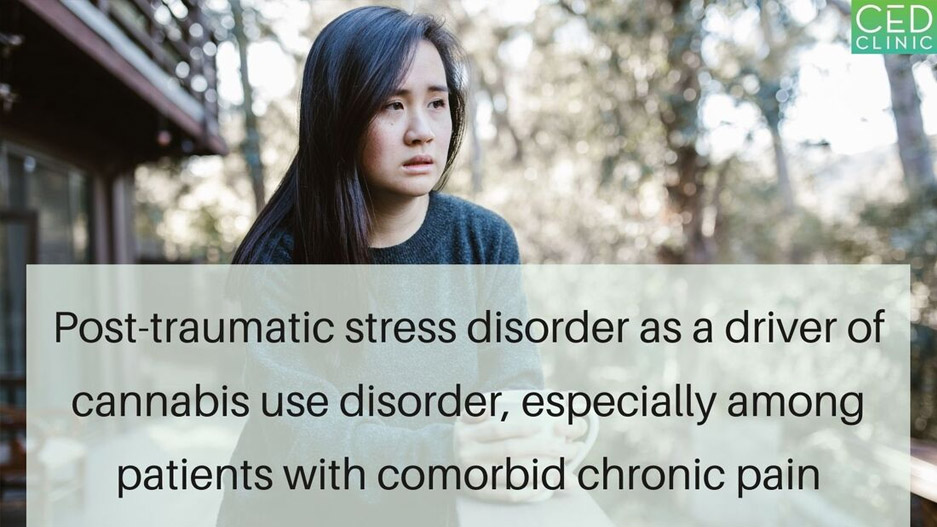Post-traumatic stress disorder (PTSD) and chronic pain are two distinct conditions found to occur together in a large number of patients. In fact, symptoms of PTSD and chronic pain tend to worsen one another, ultimately resulting in the persistence of both conditions. While medical cannabis has been widely accepted as a treatment strategy for chronic pain, its use in alleviating PTSD symptoms has only recently been introduced to and evaluated in the clinic. Although benefits have been documented in both cases, concerns have also arisen as cannabis use for therapeutic purposes – especially among psychiatric patients – appears to increase the likelihood of harmful cannabis use, triggering cannabis use disorder (CUD). As a result, it is important that healthcare professionals understand the influence of comorbid PTSD and chronic pain on the likelihood of developing CUD and on the manifestation of this disorder among patients suffering from both conditions.
To elucidate such influence, medical researchers at the University of Manitoba analyzed data on over 36,000 patients from the American National Epidemiologic Survey on Alcohol and Related Conditions. They found that the frequency of CUD was higher in PTSD patients, at 9.4%, compared to those without, at only 2.2%. In addition, while having chronic pain alone did not increase the risk of developing CUD, individuals with both chronic pain and PTSD were much more likely to develop CUD. Finally, having PTSD, no matter with and without comorbid chronic pain, was associated with more negative CUD characteristics, including earlier age of onset, greater cannabis consumption, and worse symptoms severity.
Based on these analyses, the authors concluded that medical cannabis can be safely prescribed for chronic pain-only patients as the risk for harmful use is negligible. However, healthcare providers should be cautious when prescribing it for those who suffer from both chronic pain and PTSD, as this population has an elevated risk of developing CUD.

